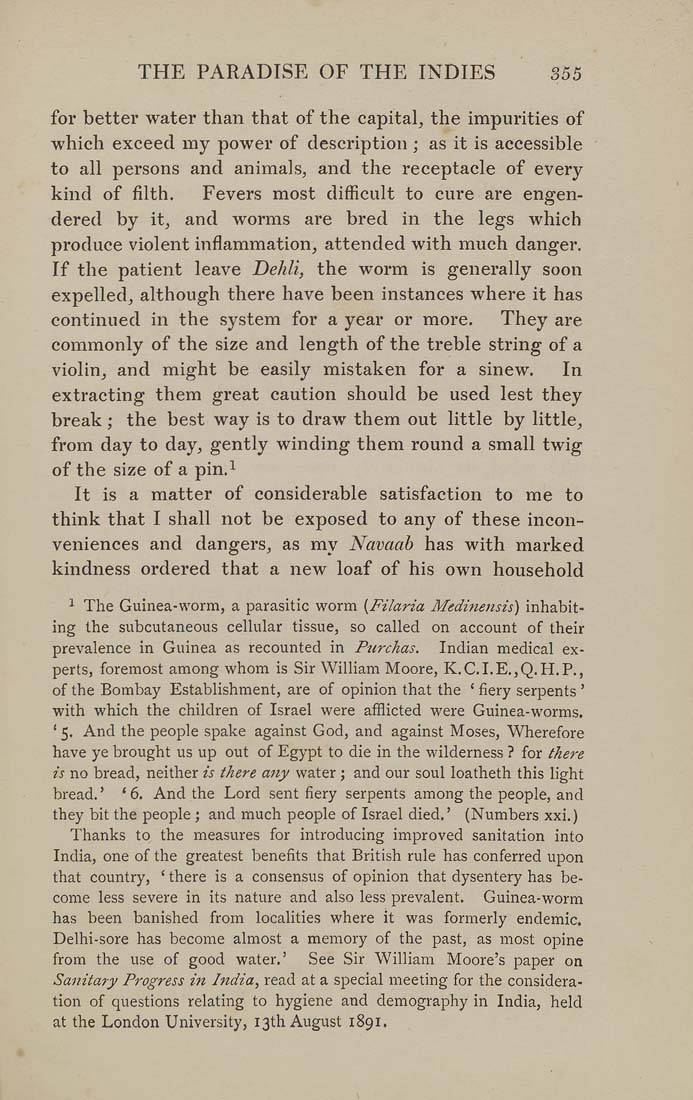THE PARADISE OF THE INDIES 355
for better water than that of the capital, the impurities of
which exceed my power of description ; as it is accessible
to all persons and animals, and the receptacle of every
kind of filth. Fevers most difficult to cure are engen¬
dered by it, and worms are bred in the legs which
produce violent inflammation, attended with much danger.
If the patient leave Dehli, the worm is generally soon
expelled, although there have been instances where it has
continued in the system for a year or more. They are
commonly of the size and length of the treble string of a
violin, and might be easily mistaken for a sinew. In
extracting them great caution should be used lest they
break; the best way is to draw them out little by little,
from day to day, gently winding them round a small twig
of the size of a pin.!
It is a matter of considerable satisfaction to me to
think that I shall not be exposed to any of these incon¬
veniences and dangers, as my Navaab has with marked
kindness ordered that a new loaf of his own household
^ The Guinea-worm, a parasitic worm {Filaria Medinensis) inhabit¬
ing the subcutaneous cellular tissue, so called on account of their
prevalence in Guinea as recounted in Purchas. Indian medical ex¬
perts, foremost among whom is Sir William Moore, K.C.I.E.,Q. H.P.,
of the Bombay Establishment, are of opinion that the ' fiery serpents '
with which the children of Israel were afflicted were Guinea-worms.
' 5. And the people spake against God, and against Moses, Wherefore
have ye brought us up out of Egypt to die in the wilderness ? for there
is no bread, neither is there any water; and our soul loatheth this light
bread.' '6. And the Lord sent fiery serpents among the people, and
they bit the people; and much people of Israel died.' (Numbers xxi.)
Thanks to the measures for introducing improved sanitation into
India, one of the greatest benefits that British rule has conferred upon
that country, ' there is a consensus of opinion that dysentery has be¬
come less severe in its nature and also less prevalent. Guinea-worm
has been banished from localities where it was formerly endemic.
Delhi-sore has become almost a memory of the past, as most opine
from the use of good water.' See Sir William Moore's paper on
Sanitary Progress in India, read at a special meeting for the considera¬
tion of questions relating to hygiene and demography in India, held
at the London University, 13th August 1891,
|








